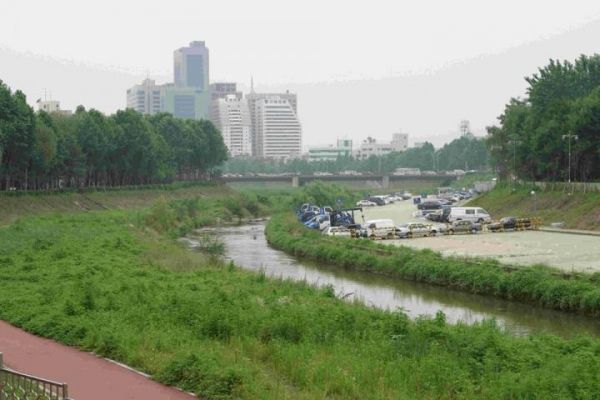A new Portland State University study shows that even though water quality has improved in South Korea's Han River basin since the 1990s, there are still higher-than-acceptable levels of pollutants in some of the more urbanized regions in and around the capital Seoul.
The study by Heejun Chang, a geography professor in PSU's College of Liberal Arts and Sciences, and Janardan Mainali, a Ph.D. student in geography, was published online in the Journal of Hydrology in June. It was supported by a grant from the National Science Foundation.
The study used spatial data from the early 1990s through 2016 to examine seasonal water-quality trends in the Han River basin, the largest and most populous river basin in South Korea. The river had become synonymous with pollution as factories, farms and city sewer systems poured waste into its waters. But ahead of the 1988 Seoul Olympics, the government launched efforts to begin cleaning it up.
The study examined the relationship between water quality — as measured by total nitrogen (TN), total phosphorus (TP), chemical oxygen demand (COD) and suspended soil particles — and topography, population density, soils, and land cover such as changes from forest or agricultural use to urban land.
Read more at Portland State University
Image: A new Portland State University study shows that even though water quality has improved in South Korea's Han River basin since the 1990s, there are still higher-than-acceptable levels of pollutants in some of the more urbanized regions in and around the capital Seoul. (Credit: Courtesy of Heejun Chang)


